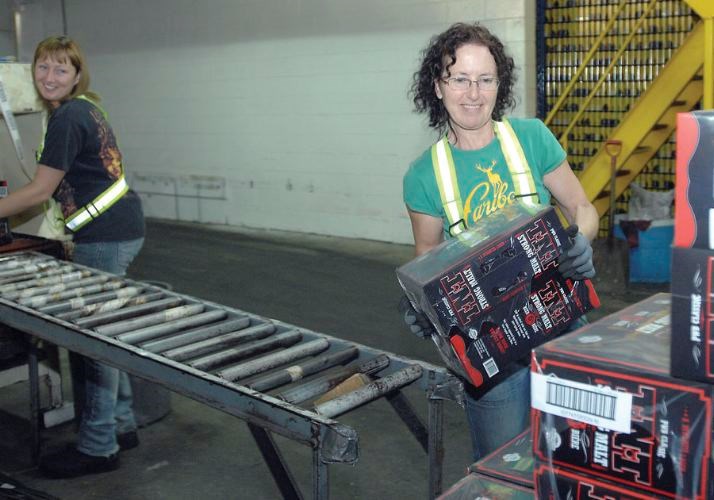Pacific Western Brewery will not have to close its doors due to a tax penalty.
Northern B.C.'s only beer factory was facing a $10 million penalty if they crossed a province-imposed production threshold by even one bottle of Cariboo Genuine Draft or Pacific Schwartzbock. That line would be crossed on about Tuesday. The only antidote would be to shut off the beer for the remainder of 2012.
The minister responsible for liquor in B.C., Rich Coleman, said the rules were changing in PWB's favour, and it would get the details on Monday.
"Nobody on my watch is losing their job before Christmas. I have the formulas, I will be working on them over the weekend, and they will have something of certainty by Monday afternoon. Monday they'll be fine," said Coleman.
That is cutting things thin for PWB staff and administration, who were assembled at the Prince George beer plant on Friday waiting to hear if they would have to pay taxes according to the old rate (the law dates back to about 1988) or at the promised new rate. The old way would force them to pay maximum brewer's tax next year on their entire production amount for 2012; the new way would allow them to pay tax rates based on a sliding scale. The more they sell, the more they pay but it doesn't trigger a massive retroactive bill like the one they are staring down at this juncture.
"I think that it's unfortunate that the BC Liberals have created this chaos for the workers at PWB," said NDP whip Maurine Karagianis. "It is always disappointing when workers are put in a position like this. Minister Coleman and his staff seem to have lost their way on this, they have made so many different statements on this, in a short amount of time, and that creates a lot more uncertainty for the business and for the workers at Pacific Western Brewery."
She wondered why PWB was up against the line when the problem has been emerging for more than two years.
Coleman countered that "the liquor laws of B.C. had a lot of problems, a lot of them were old and this was one of them" but it didn't have the same hold on the ministry due to the uncertainty that PWB would reach this level. He said the Prince George company's market success has been large in the past two years and they are the first of B.C.'s microbreweries to reach the 160 hectalitre line, but he hoped not the last, hence his need to clarify the tax regime not only for PWB but for the entire industry.
"The minister needs to approach this sort of policy with much more consultation within the industry," said Karagianis. "Now he needs to set the record straight as soon as possible so the industry can have that clarity. They need to fix this mess they've created over these last few days, and be clear about making tax policy announcements that have had full consultation and are well thought through. The minister has been irresponsible in his way of handling this, putting that company and its workers in a state of anxiety."
Part of the sudden pause at this late juncture, said Coleman, was a strong opposition to the new tax system by the large national brewers who do business in B.C. who didn't want to see the microbreweries erode their audience.
"Nobody will be perfectly happy, and in the liquor industry that probably means you found the wisdom of Solomon on this," Coleman said. "I spent two hours with them [the major brewers] yesterday talking about the craft brewing industry, and about how we could be fair and balanced, but that we in government were not going backwards and we were not going to put beer workers out of work. It was a respectful and worthwhile meeting, and for their needs we talked about ways of the whole industry developing in the long-term."
While PWB's management and staff said they couldn't bank on unofficial statements by the minister, they admitted they would sleep more soundly over the weekend knowing the government had heard their concerns and understood their contributions to the economy would be much stronger if they didn't have to pour their remaining suds - and jobs - down the 2012 sink.


.png;w=120;h=80;mode=crop)
